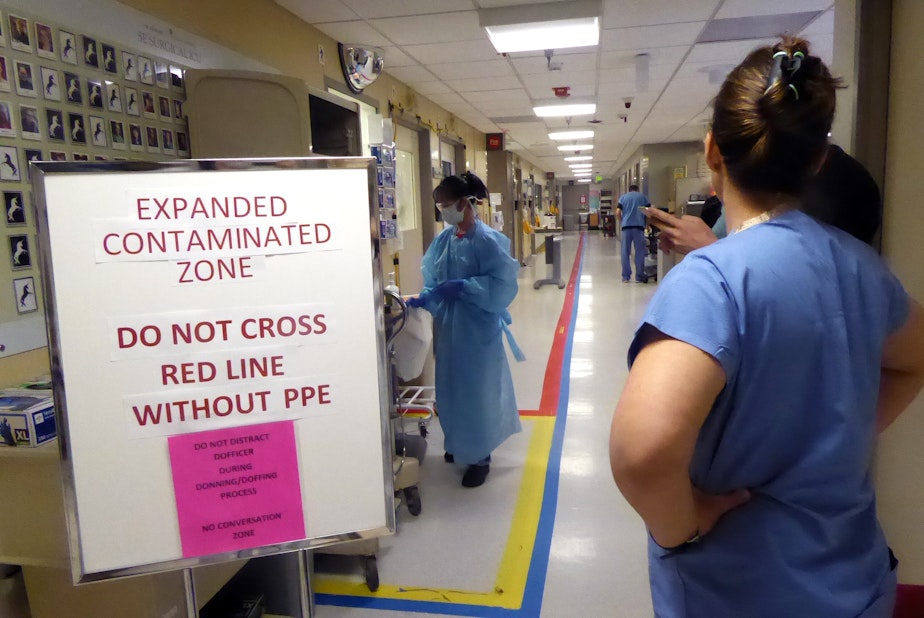I am the nurse manager on the Covid ICU. We have the sad stories, and those who have beaten this

Amy Haverland is the nurse manager on the Covid intensive care unit at UW Medical Center. She shared what it was like to have her home base turned into the place for the sickest of the sick with coronavirus.
Voices of the Pandemic features people in the Seattle area on the frontlines of the coronavirus outbreak in their own words.
My nursing director and my medical director had said there is the possibility that this area could become the Covid ICU.
And so I was here with, with my medical director of this area, we both kind of had that deer-in-headlights for a second to process that, and had had hoped our numbers would stay low enough. And had to warn the staff that we didn’t know when this could happen…
I had some nurses who told me they cried when I finally put out the email that said, “This is happening. We're going to make this transition tomorrow.”
Things have gotten better. I think at the peak, we were working 60 hours a week, six days a week. People above me were working even more hours than that – my director or CNO, and people in our command center. Just working all the time, around the clock.
Sponsored
Normally part of our mission statement at the hospital is patient-family centered care. And so our families are part of how we take care of patients. And when we in the ICU take care of patients who are intubated – they're vented, they have a breathing tube; they can't talk – it's the families we bond with, who help us know what their loved one is like.
Well, they can't be here anymore. And so it's hard to know the patient, and it's hard to know the families, because the families aren't part of this. So we're trying to call them and update them, and you figure out ways to FaceTime or you figure out how terrible it is even at end of life that families sometimes have made the difficult decision not to be here because of the risk of coming…
And what it's like to be on FaceTime and saying goodbye to their loved one for the final time, which is very different than closure with some hand holding and people being together for basically sacred moments.
As a nurse, you’re still able to keep a little bit of a distance to it, because I don't hear the grief from the family. And then you're not seeing them cry.
But what really sort of sticks with me is the stories that I hear from our social worker, who tells me what it's like when she called them the next day.
Sponsored
To hear a mother – the agony of their voice. To hear the story about their family member who was a victim to this virus. We've had patients who, when they left, we played music and we cheered and they danced in their wheelchairs.
One patient chose “Girls Just Want to Have Fun” as she rolled out of here. And so that's what you try to remember, when you have the sad stories, that there are some people who survive and they get back to their families and have beaten this.
This transcript was lightly edited for clarity.





